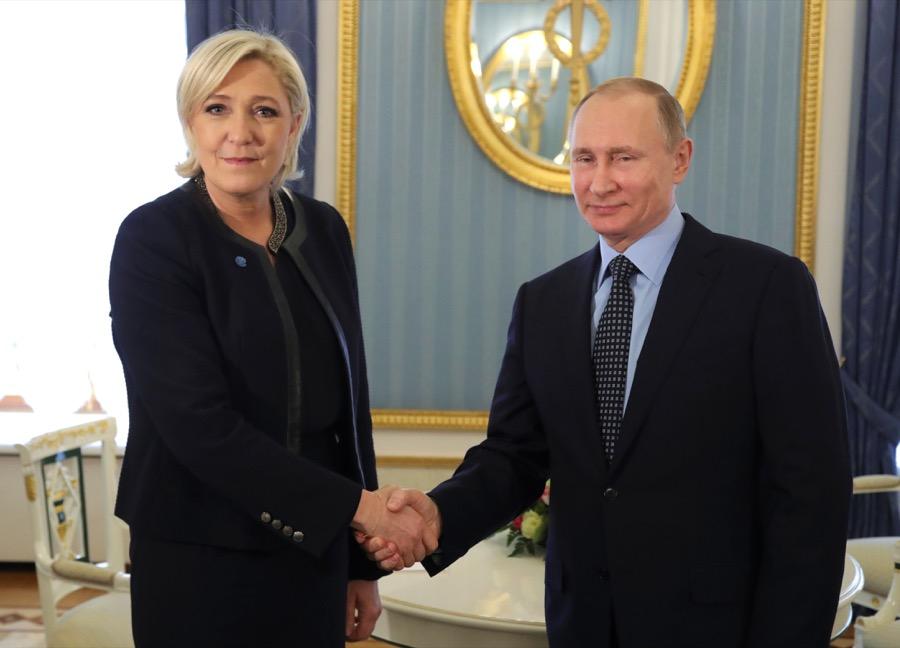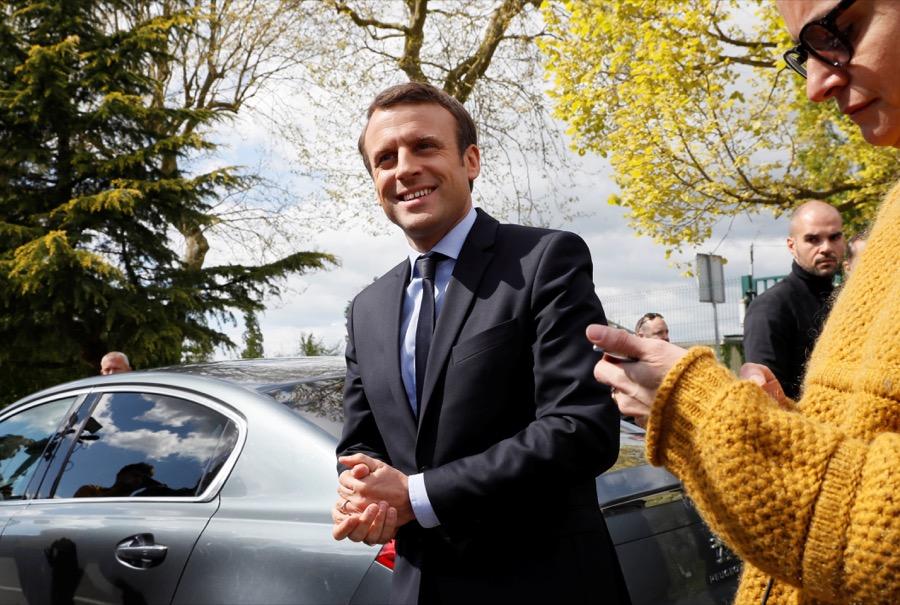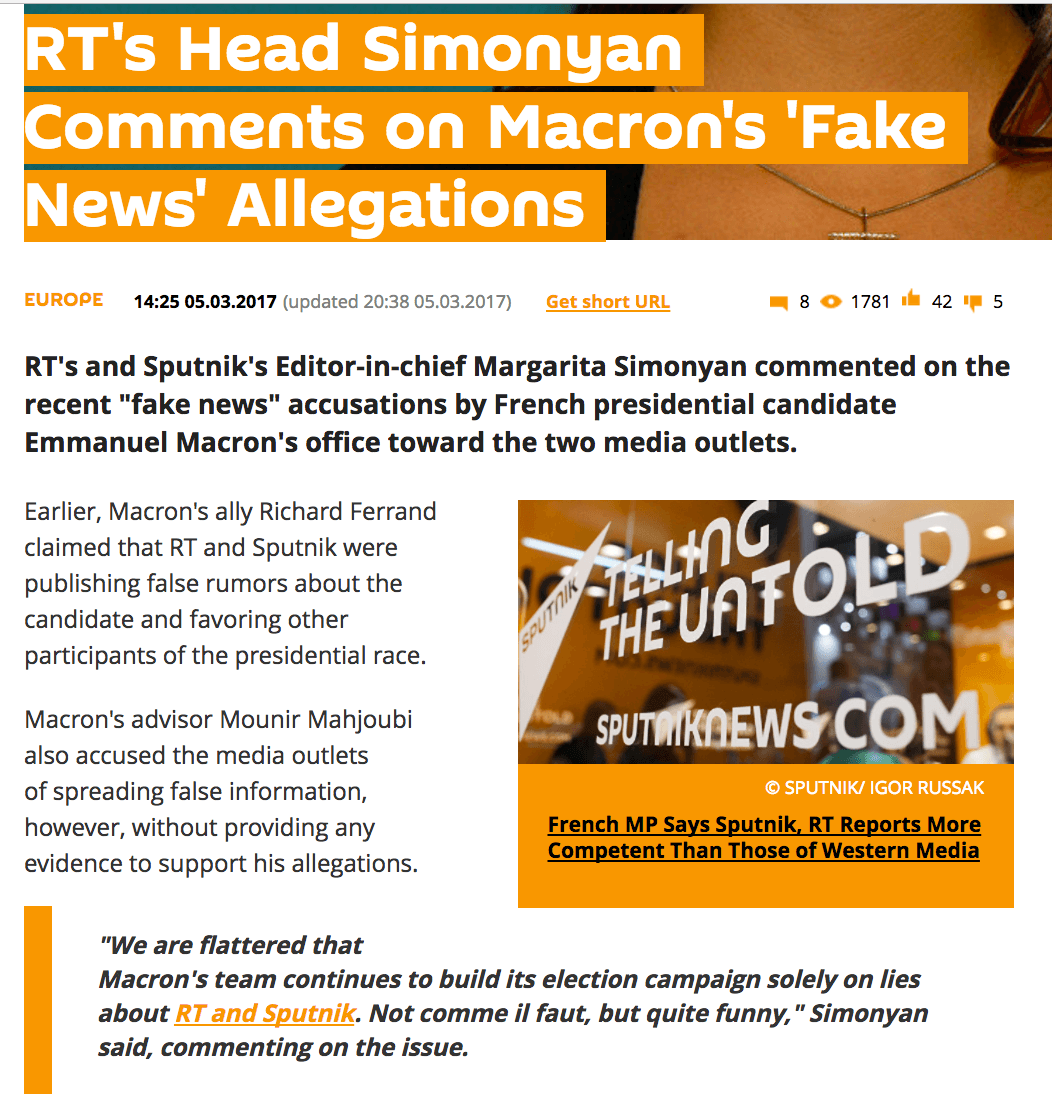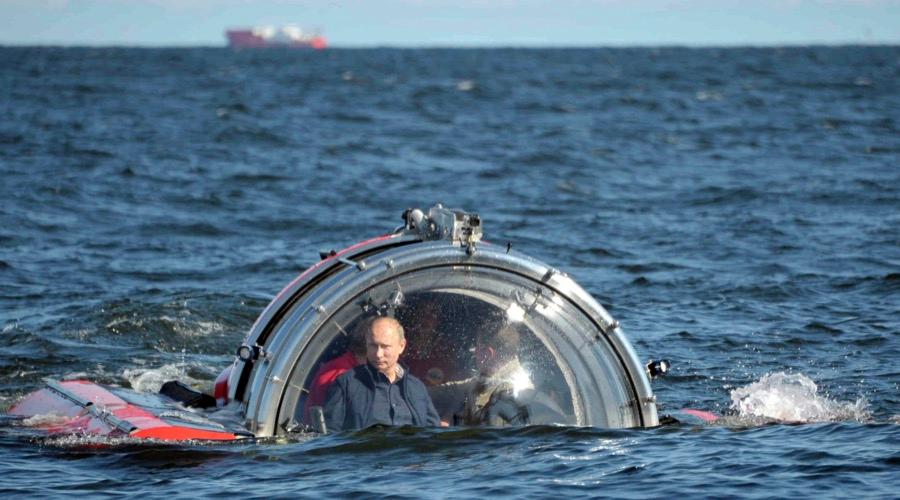In Europe, accusations of Russian meddling in elections come as no surprise
Russia's President Vladimir Putin is shown inside a C-Explorer 5 submersible after a dive to see the remains of a naval frigate that sank in the 19th century in the Baltic Sea, on July 15, 2013.
US Senate Intelligence Committee Chairman Richard Burr recently made headlines when he said: “The Russians are actively involved in the French elections.”
But that was not news to the French. One of their leading candidates for president, Marine Le Pen, had just returned from a meeting with Russian President Vladimir Putin in Moscow.

What some experts say is clear is that Russia’s government has had a hand in the election race. They accuse Moscow of boosting one candidate and smearing another, to determine the future leader of one of Europe’s largest economies and military powers.
“The Kremlin disinformation machine turned on” in France at the beginning of 2017, said Ben Nimmo.
Nimmo has researched the issue as an information defense fellow at the Atlantic Council’s Digital Forensic Research Lab. He said a stream of stories attacking Macron appeared in Russian media as the candidate began to rise in polls against his more Russia-friendly opponents, Le Pen and French Republican François Fillon.
These stories were often poorly sourced and sometimes frankly bizarre. They included allegations on the Russian website Sputnik that Macron, married to a woman since 2007, leads a gay double life and has backing from a “very wealthy gay lobby.” (Macron has denied the rumors.)
Russian support for the French right is nothing new. Le Pen’s multimillion-euro campaign loan from a Russian bank in 2014 has been widely reported. But the Macron campaign went public on the issue, specifically naming the pro-Kremlin news agency Sputnik and broadcaster Russia Today, as well as alleging Russian hackers attacked campaign servers. In the wake of the US election, allegations of a concerted disinformation campaign to influence the French vote “got a lot of traction more and more in the mainstream discussion in France,” Nimmo said.
France isn't the only country, however. Germany, with national elections coming up this fall, had its own moment of reckoning with Russian interference in its politics a year earlier. In January 2016, the so-called “Lisa Affair” grew from allegations by a 13-year-old Russian-German girl that she had been held and raped by three migrant men.
She later admitted to police that she had made the story up, which was supported by phone records that showed she had spent the night with a friend. However, allegations of a cover-up took hold among ethnically Russian Germans and in the Russian press. This led to demonstrations in Germany and Russian Foreign Minister Sergei Lavrov even repeated charges of a cover-up at a news conference.
The Lisa Affair, said Stefan Meister of the German Council on Foreign Relations, is widely considered a turning point for Germany. A false news story had made a dramatic leap to the main stage of German politics.
“This happens not often,” Meister said. But it showed decision-makers, he explained, “what Russia is willing and able to do here in Germany in terms of disinformation, manipulating public opinion.”
The Lisa Affair took place shortly before regional elections in which Angela Merkel’s Christian Democrats suffered heavy losses. However, Meister thinks the real impact of these events, or the repeated drum of negative stories about migrants in Russian media, is virtually impossible to measure.
He suggested fears of Russian influence may be overblown.
“I think the biggest success” for Russia, Meister argued, is “that we think the Russians can make Trump. Or can make Marine Le Pen.”
However, meetings between European populists and officials in Moscow have done much to legitimize candidates once considered fringe.
Jean Yves-Camus, a scholar of France’s extreme right with the French think tank IRIS, said Le Pen’s visit with Putin, so soon before the election, represented an unusually overt endorsement of her candidacy.
“It shows a direct link,” he said, in a way “which is not typical.” In an environment where open admiration for Putin is more common than in the United States, he believes her relationship with the Russian president is unlikely to hurt her with her supporters and may play to her advantage. Some voters, he suggested, may admire Putin as a strong figure who is also tough on terrorism.

Yves-Camus, co-author of "Far-Right Politics in Europe," is also skeptical of the potential impact of smear attacks on Macron.
“We have Russia Today on cable TV here, but, unless you speak English or Spanish, you probably never come across that channel,” he observed, though he noted these stories are recirculated among the French right.
Nimmo, on the other hand, believes an online echo chamber does give these stories an outsize reach.
Based on his analysis, he said, “among the top amplifiers of RT France and Sputnik France on Twitter, a substantial number are clearly nationalist, isolationist or far-right accounts, and some appear to be heavily automated.”

Sputnik and RT are also reported to be targets of US investigations into alleged Russian meddling in the elections.
Facebook and Google appear to be taking the prospect of “fake news” and the European elections seriously. In February, they launched a platform called CrossCheck in partnership with a number of French newsrooms to identity and fact-check stories circulating online. One of these partners, the newspaper Le Monde, has its own team of fact-checkers called “Les Décodeurs.”
In Germany, Facebook has teamed up with a news organization called Correctiv to vet stories shared on their platform.
Since the Lisa Affair, Meister said, “I think we are much better prepared for these kinds of cases. We are faster at responding to this. The media is also faster in reacting to this.”
However, he believes this response is not well-coordinated among institutions in Germany or France.
“You need someone who has a lead on coordinating all the institutions who respond to this,” he suggested.
A number of unknowns also remain in both political contests. In early February, Julian Assange said in an interview with a Russian newspaper that he had "interesting information" about Macron uncovered in Hillary Clinton’s emails. Yet some journalists speculated that Assange may have been referring to innocuous details that were already public.
Meister also pointed to the 2015 hack on the German parliament, the Bundestag, which a subsequent investigation blamed on Russian intelligence agencies.
“Here, people [are] really afraid,” he said, that material gleaned from the attack could appear on WikiLeaks.
“But we have to understand that Merkel is not Hillary Clinton,” Meister added. “She's much more boring than Clinton. So I don't think you will find so much but we never know. You always can create something if you have information.”
Every day, reporters and producers at The World are hard at work bringing you human-centered news from across the globe. But we can’t do it without you. We need your support to ensure we can continue this work for another year.
Make a gift today, and you’ll help us unlock a matching gift of $67,000!
